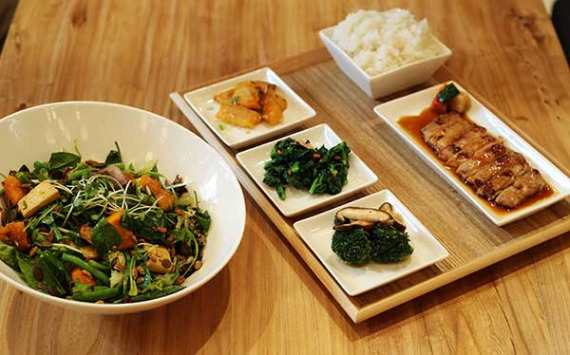
To demonstrate the impact of proper nutrition, Wang then began eating a healthy diet, the sorts of meals he'd been preparing for his clients anyway. Twelve weeks later, he was back down to 80 kilos, his ballooned waist shrinking from almost 37 inches back to 31.
Importantly, he stayed on the same gym routine during both the unhealthy and healthy eating periods, working out five or six times per week for an intense 90 minutes. The only variable was his food intake.
Recent trend
Wang isn't the only entrepreneur who's found healthy food and exercise to have parallel business potential. Fitness programs across China's big cities, following a trend in the West, have teamed up with like-minded restaurants to match workouts with calorie intake, and balance carbohydrates, proteins and fats - whether the goal is bulking up or shedding pounds.
"If you want to lose weight," says fitness coach Matin Zamani, who has teamed up with Beijing's Factory by Salt for prepared and delivered meals, "the general rule is to consume 400-500 fewer calories than you burn every day. So someone who works out two times a week needs a different menu plan than someone who goes to the gym every day."
The Japanese restaurant Obentos, which launched four years ago with a focus on healthy eating, has lately been feeding participants in a range of fitness programs, from get-in-shape bootcamps and Heyrobics meet-ups to yoga sessions. Over the past 18 months, the most intense partnership has been with Fight Camp, four weeks of "lung-busting, grueling workouts" that co-founder Rory Van Den Berg and his training team combine with a package of local discounts that include 15 percent off Obentos meals. These can be delivered when pre-ordered to the Capital Training Center gym after morning and evening sweat sessions.
"Fight Camp aims to be holistic in that we also try to take care of the diet," says Van Der Berg.


















































